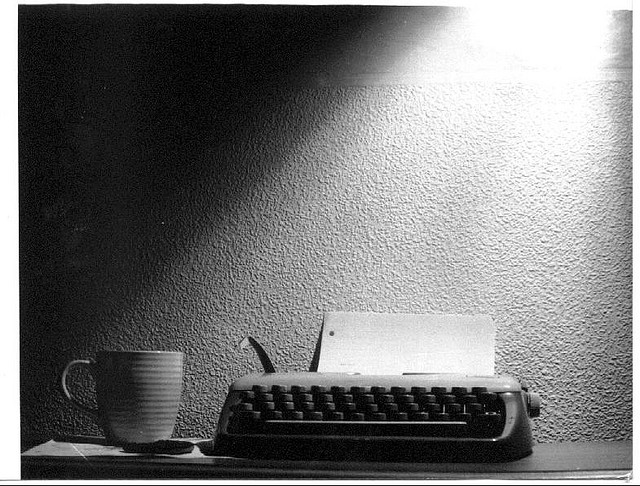
Image Credit: http://araugustyn.com/overcoming-writers-block/
For the first few days or weeks, your novel will seem easy. You’ve settled into a style, you’re inspired by everything around you, you’re writing your favorite chunks of the plot. But then disaster will strike. You know that you have to link two sections of your novel, but the effort of thinking about it, much less sitting down to write it, is too much. Plus, every time you sit down to write, you can’t get into the rhythm of your style, and everything you produce feels trite and insufficient. It will not be fun.
At this point, many people give up on their novels (see myunfinishednovel.com). It just happens. And maybe most tellingly, you won’t think about your characters or your plot for days; you won’t notice small details in your everyday life and remember them for later. You will hit a writer’s block.
This is fine. It happens. If you’ve completely stopped caring about your seedling novel, then maybe it’s time to let it go. People do “outgrow” the stories that they once wanted to tell. But if you still like what you’ve written so far and you’re still (even abstractly) interested in seeing your characters through, then here are a few tips to get through the hard times:
Keep a notebook and pen/pencil with you always. You’ll have experienced by now the difference between composing paragraphs in your head and transposing them onto paper. A brilliant subway train of thought always deteriorates by the time you get to your stop. I know that you spent over half your life on a computer. You’ve been allowed to take notes on a laptop since the start of freshman year. But look: don’t underestimate the power of writing things down.
Make playlists. Follow the tradition of vampire/supernatural novelists (Stephanie Meyer and Kim Harrison do it) and several pop-y TV writers (The OC did this too): make character-specific playlists. It’s like making a playlist for finals. It’s a fun way to procrastinate, and thinking about specific songs also forces you to think about the specific character and how much certain songs fit into their lives. You can also make plot-specific playlists, or if you want to get super specific, cross reference the two and make a really comprehensive series of playlists for every character in every scene. Having a standard set of associations with your novel will also help you get into the same mood every time you prepare to really write.
Write. Write more. Joyce Carol Oates writes for about eight hours a day. Ray Bradbury tries to finish one short story a day. Ask any writer, fiction or nonfiction, contemporary or historical: the only way out is to keep writing. Whether you use any of the material you write during your dry spell is irrelevant. Take fifteen minutes at the beginning of everyday and just free write—don’t worry about the topic or spelling or punctuation. Write your bridge chapter badly, changing it every day until you can move on to the next bit. Write in the present. Write in the future. You know. Stick with it and all that.
Sidebar:
Casting your novel
A friend of mine is ghost-writing a creative non-fiction book about her boss’s grandmother. She finds it easier to work when she can look at the grandmother’s photo; she imagines the woman in the photo living her life and narrates that. I’ve celebrity cast my novel (Josh Jackson and Matthew Goode are in it), and I find that putting the thoughts and actions on a physical body helps me map a logical progression of what happens next. Also, looking up photos and making pretty montages is a great way to procrastinate.
By Robin Yang
Robin Yang was one of the Campus Clipper’s publishing interns, who wrote an e-book on how to write a novel. If you like Robin’s writing, follow our blog for more chapters from this e-book. We have the most talented interns ever and we’re so proud of them! For over 20 years, the Campus Clipper has been offering awesome student discounts in NYC, from the East Side to Greenwich Village. Along with inspiration, the company offers students a special coupon booklet and the Official Student Guide, which encourage them to discover new places in the city and save money on food, clothing and services.
At the Campus Clipper, not only do we help our interns learn new skills, make money, and create wonderful e-books, we give them a platform to teach others. Check our website for more student savings and watch our YouTube video showing off some of New York City’s finest students during last year’s Welcome Week.
Become a fan on Facebook and follow us on Twitter and Instagram!


